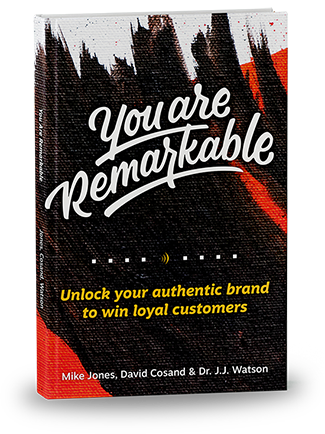 Remember this line?
Remember this line?
When Mr. Bilbo Baggins of Bag End announced that he would shortly be celebrating his eleventy-first birthday with a party of special magnificence, there was much talk and excitement in Hobbiton.
How about this one?
Mr. and Mrs. Dursley of number four, Privet Drive, were proud to say that they were perfectly normal, thank you very much.
Even as I write I feel myself getting sucked in all over again. There’s something very special going on in those opening lines to two of my favorite novels.
If you’re not feeling it, you’re probably Spock…or you haven’t read the books.
Why Story?
Story is a powerful force. Imagine the ancient nomadic tribes, wandering and camping in the Middle East. With stars filling the sky, communities sat around the fire rehearsing the narratives that had been passed down for generations. Jump to present day, and look around: new movies released every week telling stories of all shapes and sizes, new novels released faster than they can be printed, and TV shows airing every second of every day.
Story is written into the fabric of the human experience.
Science offers an explanation. In recent years, scientists have made some interesting discoveries about the human brain. MRI scanners have revealed that when someone is receiving a simple list of facts two parts of the brain are engaged. However, when that same person receives information in story format, he or she has up to six parts of the brain engaged.
Stories are more engaging at a neurological level. People remember them better, and they cause communication to be more effective. – Psychology Today
What about Marketing?
Good marketers have always known the power of story. Joe Sugarman sold 20 million pairs of sunglasses in the 1980’s with story-form ads like this. In 2015, Budweiser’s Lost Dog commercial won the hearts of the world during its Super Bowl premiere.
The problem is this: as I look around the marketing landscape today I see a ridiculous amount of billboards, homepages, emails, social media updates, and direct mail that are simply stating facts.
- “Best Law Firm in the East Valley, 205 years running.”
- “We do HVAC Service and Repair for Commercial and Residential and Astronautical.”
- “25 YEARS IN THE VALLEY. 1 MILLION LOCATIONS!!!”
Okay, okay, I jest (barely). But the problem is prevalent. Take 30 seconds and read the nearest marketing copy you can find. I’ll bet you $5 it’s not in story form. Was I right? (I accept VISA.)
Those messages that are sent without any adherence to the power of story are lost. Like “Lost in Space” lost.
No one is engaging, no one is digesting, no one is considering the message that’s trying to be communicated. It’s just getting completely and utterly lost in the noise.
Don’t get lost in space.
The Form
Robert McKee, author of “Story” offers this definition of a story: “… an event that throws life out of balance, the need and desire to restore the balance, and the Object of Desire the character conceives of consciously or unconsciously that they can pursue against the forces of antagonism from all of the levels of their life that they may or may not achieve.”
Donald Miller says, in its simplest form, a story is “a character who wants something and has to overcome conflict to get it.” Easy, right?
I used to think good storytellers were born that way. I’d imagine my Dad telling a story to a captivated room full of people, and think to myself, “I could never do that.”
That’s not true. The best storytellers are those who practice the craft, and they get better at it over time.
The Challenge
Start practicing storytelling. If you’re not already, start forming messaging in this format: a character who wants something and has to overcome conflict to get it. I don’t care if you’re writing a Facebook update, or a novel, 140 characters, or 40,000 words. Who is the character, what do they want, and what conflict do they need to overcome to have their happy ending?
Take this as a challenge. Frame the next message you send in story format.
I’ll give an example. Yesterday, I had to send a tweet to communicate that a weekly event I help organize was cancelled. A poor way to craft that message would be to say something like:
“Event Cancelled. We’ll reschedule.”
There’s not much story there. I’m essentially listing two facts. While it presents all the necessary information, there’s no depth. It’s not going to help anyone engage and consume the information.
What if I said it like this:
“Sadly, no event tomorrow. Working hard to make sure next week’s gathering will blow your mind. Hang in there… it’ll be worth it!”
In this tweet, I introduced a character (the event attendee), something they want (a kick-ass event), conflict (this week’s event is cancelled and they have to wait until next week), and I even dangled the carrot of a potential happy ending (it’ll blow your mind, it’ll be worth it). All in less than 140 characters.
Go Forth and Do
If we learn to do this well, if storytelling becomes the norm, then we’re going to see our marketing messages skyrocket with engagement. People will be drawn in, and their interest will be held, and they’ll actually have a delightful experience while consuming our content.
Storytelling wins interest.
Storytelling keeps interest.
Storytelling inspires deeper relationships.
Storytelling drives growth.
Learn how to tell stories.



